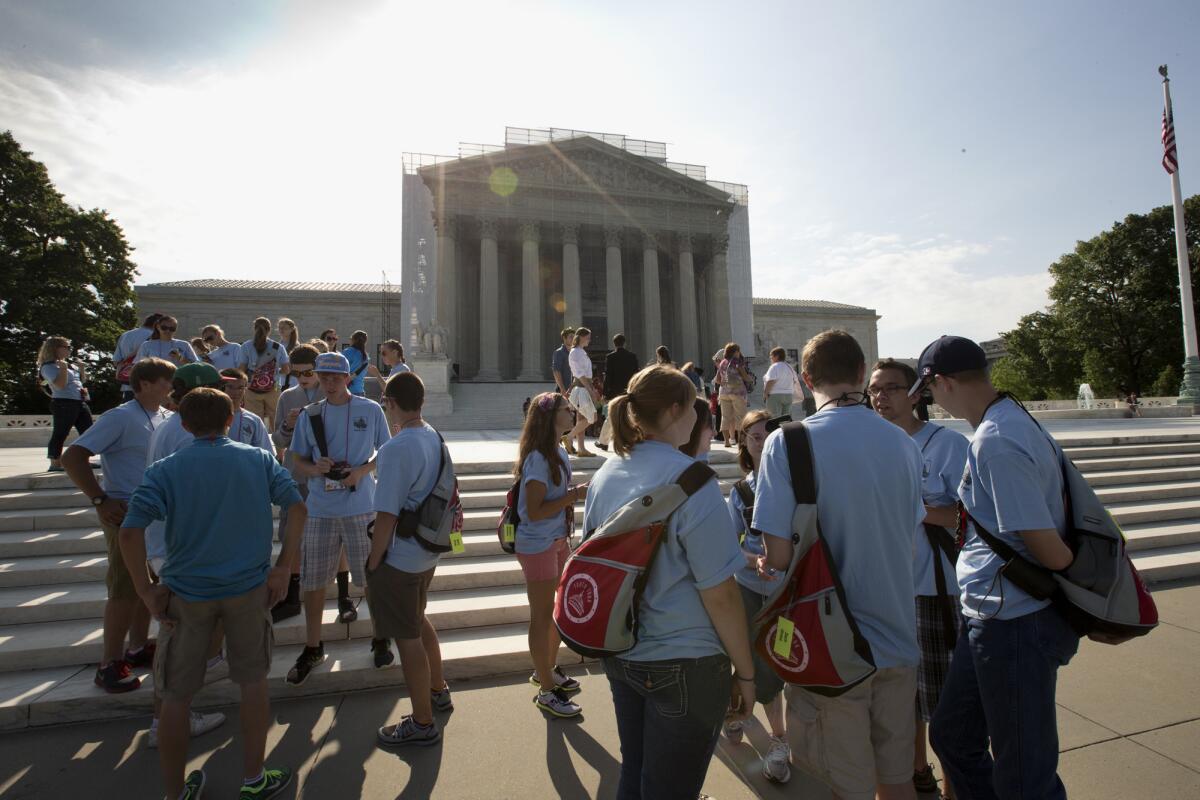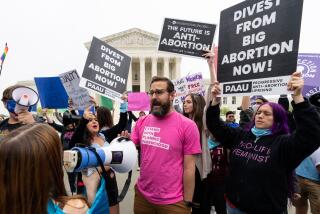Supreme Court strikes down funding law on sex trafficking

WASHINGTON — The government may not require people or groups to “pledge allegiance” to its policies as a condition of obtaining grants, the Supreme Court ruled Thursday in a broad defense of the 1st Amendment’s protection for the freedom of speech.
The 6-2 decision written by Chief Justice John G. Roberts Jr. strikes down part of a federal law that requires groups that receive funding to fight AIDS overseas to announce policies “opposing prostitution and sex trafficking.”
Several groups that receive funding sued to challenge this requirement on the grounds it would make it hard for them to work with prostitutes who need testing and treatment.
For the Supreme Court, the case raised the recurring question of whether the government can use its funding power to require grant recipients to follow its rules and policies. In the past, the court has upheld federal laws that required libraries to filter pornography from its computers and that told doctors in subsidized clinics they may not advise patients about abortion.
But in Thursday’s opinion, the chief justice said these decisions involve the government’s refusal to subsidize certain activities. The government may not go further, he said, and “leverage funding to regulate speech outside the contours of the program itself.”
The law requiring groups to declare their opposition to sex trafficking “falls on the unconstitutional side of the line,” he said. “It is about compelling a grant recipient to adopt a particular belief as a condition of funding.… It requires them to pledge allegiance to the government’s policy of eradicating prostitution.”
Justices Antonin Scalia and Clarence Thomas dissented. “The 1st Amendment does not mandate a viewpoint-neutral government,” Scalia said. He called the funding condition in this case “the reasonable price of admission to a limited government-spending program that each organization remains free to accept or reject.”
Justice Elena Kagan recused herself from the case of Agency for International Development vs. Alliance for Open Society.
Follow Politics Now on Twitter and Facebook
More to Read
Get the L.A. Times Politics newsletter
Deeply reported insights into legislation, politics and policy from Sacramento, Washington and beyond. In your inbox three times per week.
You may occasionally receive promotional content from the Los Angeles Times.











